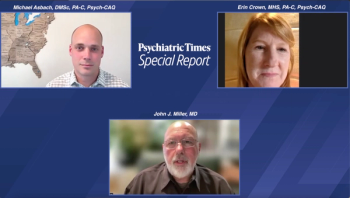
Negative and Positive Consequences of Internet Use
Across all mental illnesses, especially in schizophrenia, the goal is to optimize cognitive functioning. Digital Psychiatry Section Editor John Torous, MD, MDI, sheds light on new advances.
RESEARCH UPDATE
Across all mental illnesses, especially in schizophrenia, the goal is to optimize cognitive functioning. But in the online world, how are our digital environments changing the brain and the way we think?
John Torous, MD, MBI, co-author of "
Understanding the potential influences of the digital world can help us both design new tools to assist those with cognitive impairment in illness like schizophrenia, and also work to ensure we use technology towards recovery and to optimizing cognition.
Dr Torous is Director of the Digital Psychiatry Division, Department of Psychiatry at Beth Israel Deaconess Medical Center, Boston; Editor in Chief of
Reference
1. Firth J, Torous J, Stubbs B, et al. The "online brain": how the Internet may be changing our cognition. World Psychiatry. 2019;18:119-129.
Newsletter
Receive trusted psychiatric news, expert analysis, and clinical insights — subscribe today to support your practice and your patients.






